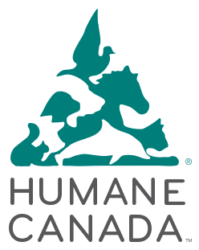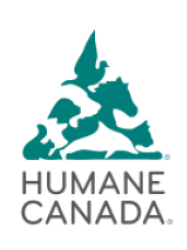In June before the federal election call, we said that 2019 was shaping up to be a very good year for animals, and we were right. 2019 was a year where we can truly celebrate many improvements in animal welfare. Let’s take a look back…
- Bill S-203 – Canada’s Free Willy Law – bans the captivity of whales and dolphins. Our law makers have also recognized that banning the capture and confinement of whales and dolphins doesn’t go far enough. The Canadian Parliament also banned the breeding of captive whales and dolphins. This is a big win for our cetaceans.
- Bill C-84 – This bill modernizes the bestiality and animal fighting clauses of the criminal code. The legal term ‘bestiality’ now refers to all sexual abuse of animals. The bill also signals Canada’s new priority on fighting animal crimes, which protects animals AND people too. What makes it truly ground-breaking is it that anyone convicted of animal sex abuse must register on Canada’s National Sex Offender Registry and report annually to police.
- Bill C-68 – This bill bans shark finning – the cruel act of removing fins from sharks and discarding the rest of the shark.
- New Transportation Regulations for Farm Animals – Humane Canada saw recommendations included in the transportation regulations released in 2019 by the federal government that will increase animal welfare and we continue to work to enhance them further.
- The PAWS Act – In the wake of the Ontario SPCA stepping away from its enforcement responsibilities, Bill -136 is introduced and passed in Ontario. It’s important to note that the new legislation includes several of Humane Canada’s recommendations, and we are continuing our work to enhance them further.
- Pit Bull Ban Repeal – Currently referred to the Ontario Standing Committee on General Government – this bill repeals provisions in the Dog Owners’ Liability Act that prohibit restricted pit bulls. Humane Canada opposes laws banning individual breeds. We believe that the most effective way to address public safety concerns is for humane organizations, other animal stakeholder organizations, provincial governments and municipalities to work together on multi-faceted strategies that identify and address dangerous dogs of all breeds.
- Police Training – Humane Canada partners with the Ottawa Police Services to create and implement the first Violence Link training for police officers in Canada. With the success of the pilot program, 2020 will see the training rolled out across Canada.
- Convictions – In a precedent setting case a 31-year-old man in Nova Scotia was sentenced for animal cruelty after the SPCA showed his dog suffered ‘undue anxiety’ after the man whipped the dog repeatedly with a leash. This is the first conviction based on psychological harm rather than physical evidence.
- Canadian Violence Link Conference – Humane Canada hosts the second #LINK education conference bringing together enforcement, prosecutors, veterinarians, social workers and academics to learn about the links between animal and human violence. Results of the conference included an expanded understanding of the Link, how to recognize, respond and react.
- Animal Cruelty Prosecution Conference – Humane Canada hosts the 5th annual Animal Cruelty Prosecution Conference with the largest group of Crown Prosecutors from across Canada to date.
So as you can see, we are proud of what we’ve accomplished together. Thank you. We have built some serious momentum for Canadian animal welfare and we’ve closed off this decade with the wind in our sails. We can’t wait to see what the 2020’s will bring.
Why not get involved and make a difference?
Humane Canada is a registered charity that relies on your donation to continue this crucial work in animal welfare; please consider supporting the work we do to build a humane Canada for everyone by becoming a monthly donor. For as little as $5.00 a month you can be an Animal Hero enabling Humane Canada to advocate for changes to the framework of laws governing Canada’s animals to end animal cruelty, improve animal protection and promote the humane treatment of all animals.



